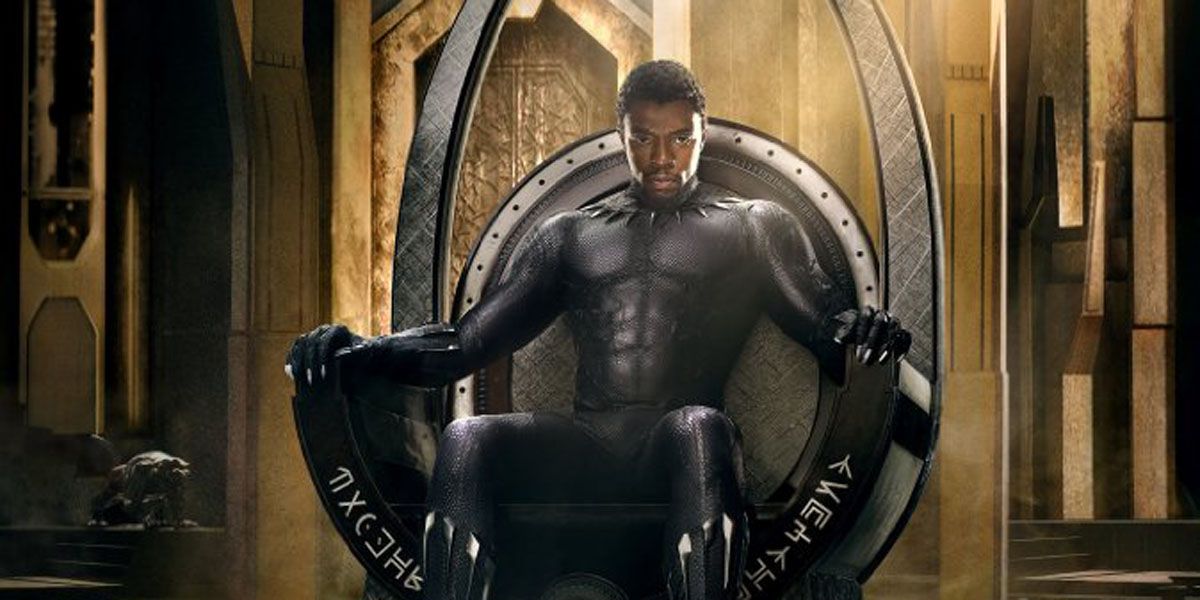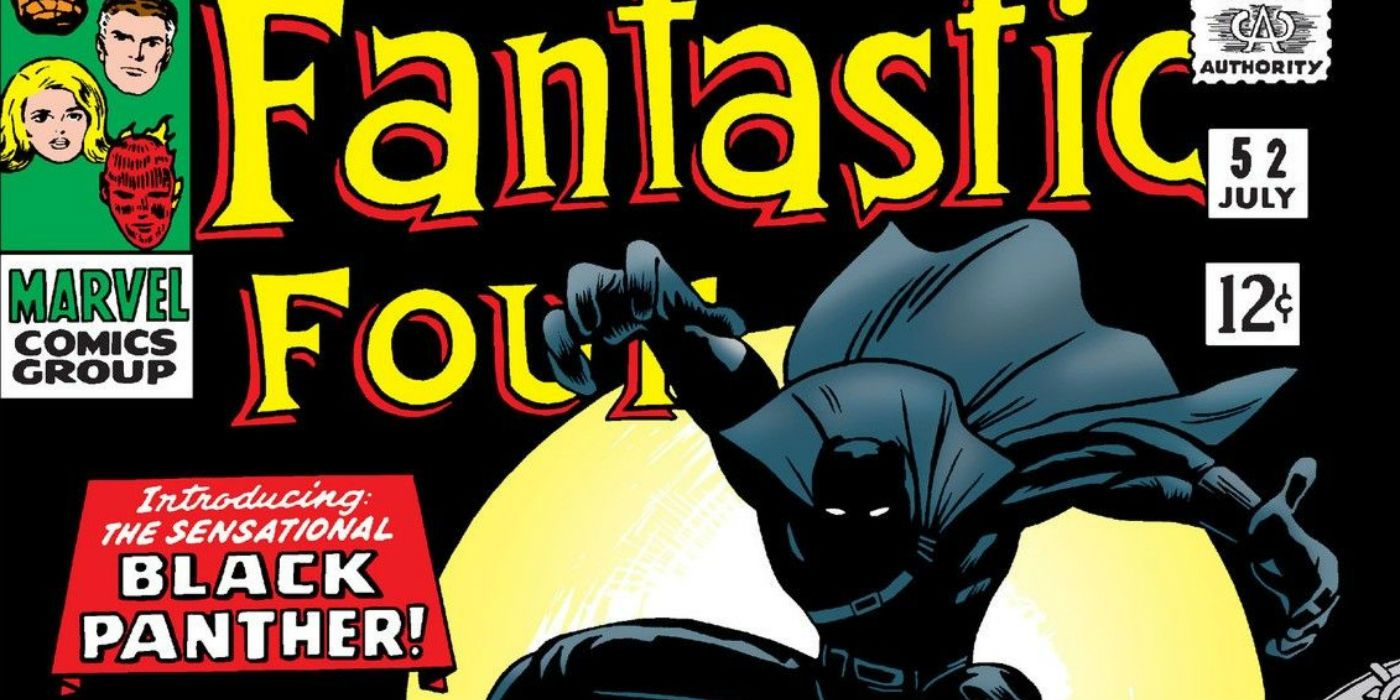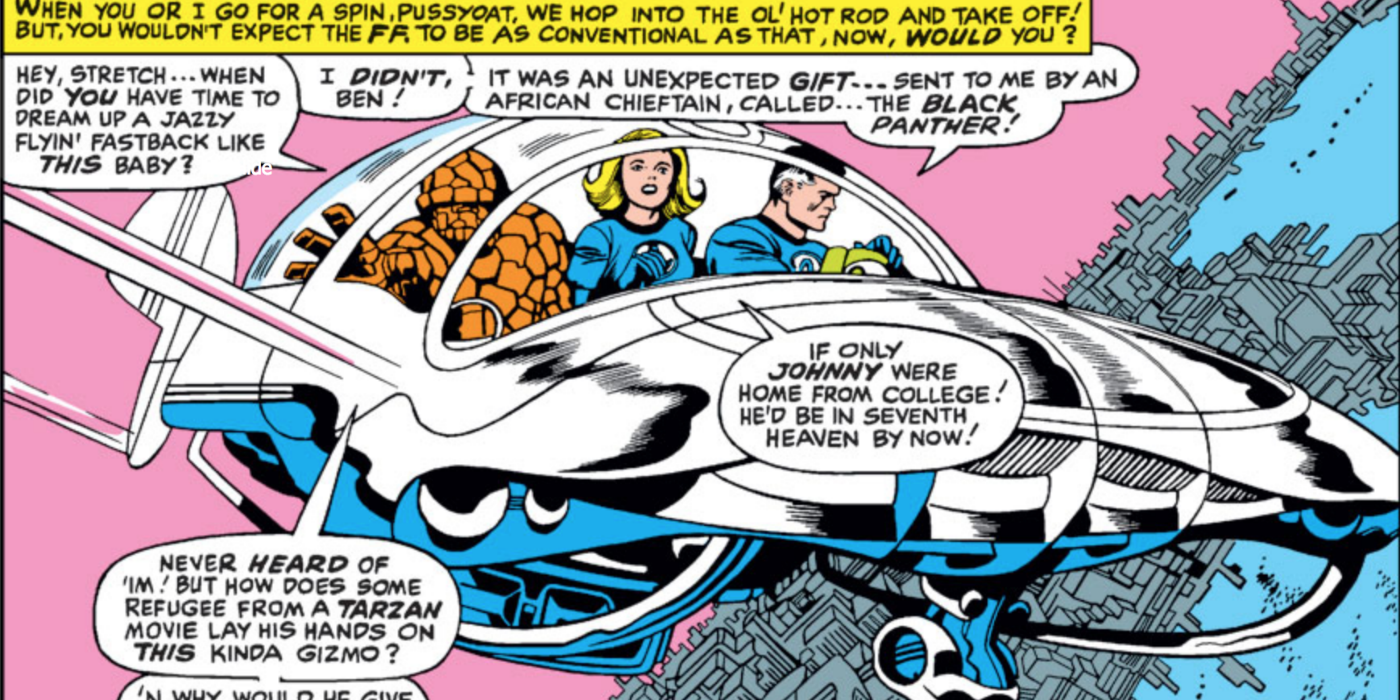WARNING: The following article contains spoilers for Marvel’s Black Panther, in theaters now.
If you follow the news or peruse social media, you're no doubt aware we live in a tense political time, in which many of our long-held values and established institutions have been called into question. Needless to say, director Ryan Coogler's Black Panther arrives at an interesting moment. Given that its story has something to say about society, there were some who criticized the decision to inject politics into an action movie. That kind of reaction is perhaps to be expected, and while it's not always without reason, this time it's ill-informed, for one simple reason: Black Panther has always been political.
You'll hear a lot about the film being the first big-budget blockbuster with majority black cast. Its critical and commercial success serves as definitive proof there's no need to "whitewash" roles, as so many Hollywood releases have done, in hopes of appealing to a wider audience. To that end, Black Panther should be recognized as a major turning point.
RELATED: When Black Panther Re-Named Himself ‘Black Leopard’
However, even if it hadn't arrived at this specific moment, when the world wasn't so focused on what every detail of a film, song or poster was trying to say, Black Panther would still be a strong sociopolitical statement. It's unavoidable, because politics and social commentary are at the core of the character.
The first superhero of African descent in mainstream comics was Black Panther, introduced in 1966 in Marvel Comics' Fantastic Four #52, by Stan Lee and Jack Kirby. The character as significant for a variety of reasons, the first being that, at the time, there were no black superheroes. There was certainly none that received as much attention or had attached to them the idea of Afrofuturism, the way T'Challa did with the introduction of Wakanda.
The comics presented the city as a technological marvel in the middle of the poorer nations of Africa, which was revolutionary, especially in relation to the way the continent was depicted in the media of the time. The comics broke away from that, going so far as to represent the misunderstandings the general public possessed through The Thing and the Human Torch in Fantastic Four.
As you can see, from the very beginning, Black Panther was a character with something to say. The Black Panther title that followed would continue to include race, prejudice, ignorance and other political themes that resonate on several levels. This is a character who must rule over a nation as it transitioned out of the isolationism it had maintained for centuries, all the while trying to construct and nurture prosperous relationships with the outside world.
It was for that reason Black Panther executive producer Nate Moore said in early interviews that while the film wouldn't bring any kind of message to the forefront, it would be inherently political. So much so that he was confident its relevance would be almost immediately grasped by the audience, similar to the topics explored in Captain America: The Winter Soldier.
Page 2: [valnet-url-page page=2 paginated=0 text='Black%20Panther%20Raises%20a%20Lot%20of%20Questions']
Much like the comics, the film explores the ideas that comprise Afrofuturism; it touches upon race, tradition, prejudice and identity with respect to those of African descent. For example, there's a scene in which Killmonger robs a museum of its relics by using the staff's own prejudice against them, criticizing the curator's ignorance even as she falls to the ground because of poison. They were so busy watching him, a black man, that they never saw the real danger. That kind of scrutiny, unfortunately, is something many black men and women are familiar with: No matter how they present themselves, there are always ignorant people who will assume the worst from them for no other reason than the color of their skin.
There's also a scene in which T'Challa (Chadwick Boseman) discusses with W'Kabi (Daniel Kaluuya) the possibility of Wakanda aiding neighboring countries. W'Kabi dismiss the idea, stating that refugees would simply bring their problems with them; he's fearful that would destroy the Wakandan way of life. It's a view reflective of that taken by many in the Western world when faced with refugee crises.
None of these were in anyway unnatural in the context of the film. They were points raised organically, which was not a difficult thing to do given the nature of the character and his story. You'll find that while the film refrains from directly connecting its themes to the current issues of our sociopolitical climate, it still conveys relevant messages about the topics many are focused on, which seems to be what Moore and Coogler had hoped would happen.
The significance of each character and the complicated themes they explore are allowed to speak for themselves. The filmmakers simply create for us the means to see it all happen. Black Panther raises questions and gives us a lot to think about, but it never forces any particular message, because it doesn't need to. It is, by nature, a political film, which is what Black Panther as a character is all about.
For those who may not have wanted to see a superhero film charged by the fire that stems from current social issues: We get it. There's nothing inherently wrong with wanting a mindless action film featuring epic battles between super-powered opponents. Entertainment is largely a form of escapism, so you don't have to think about the issues of the world you've been bombarded with for the last ... however long. However, you cannot expect Black Panther to be one of those films. Nor should you.
Black Panther's purpose has never been to simply entertain, and it would be incredibly disappointing if that's how the Marvel Cinematic Universe -- or anyone, for that matter -- tried to limit him.
In theaters now, Black Panther, directed by Ryan Coogler, stars Chadwick Boseman as T'Challa, Michael B. Jordan as Erik Killmonger, Lupita Nyong’o as Nakia, Daniel Kaluuya as W’Kabi, Letitia Wright as Shuri, Danai Gurira as Okoye, Angela Bassett as Ramonda, Martin Freeman as Everett K. Ross, Andy Serkis as Ulysses Klaue, Winston Duke as M’Baku and Forest Whitaker as Zuri.



